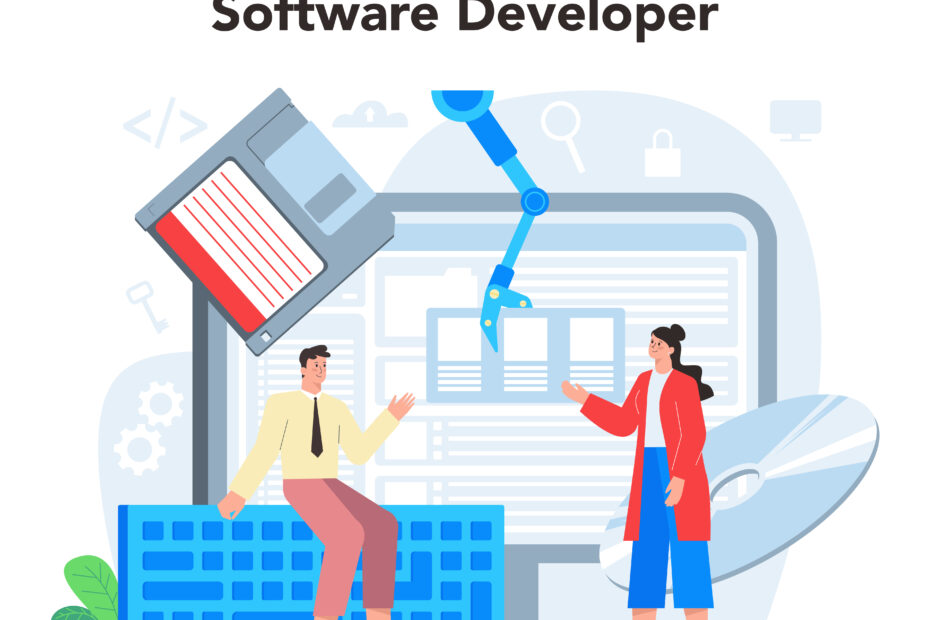Picking a software developer career path can be tough, especially for beginners. Key to your progress is knowing the necessary skills for each level.
Whether you’re a beginner or an experienced developer eyeing a leadership role, the right skills are vital for moving up. This guide outlines the stages and the important skills needed at each level.
Starting Out as a Junior Developer
Beginning your journey as a junior developer is both exciting and daunting. At this stage, the focus should be on mastering the basics of programming languages and software development.
Familiarity with foundational languages like Python, Java, or JavaScript is vital. They are widely used in the industry. Also, knowing version control systems like Git will help with teamwork.
Practical experience through projects will prove your coding skills. These can be personal, academic, or from internships. Online courses can provide valuable insights. They can also build your confidence in your skills as you pursue a career as a software developer.
Intermediate Skills as a Mid-Level Developer
Once you have gained a couple of years of experience, you transition into a mid-level developer role. Here, it becomes essential to expand your knowledge. You need to embrace software development skills that go beyond programming expertise.
Strong problem-solving skills and the ability to understand system architecture become key advantages. Furthermore, being proficient in multiple programming languages enhances your versatility. Explore cloud services, databases, and frameworks relevant to your work.
Learn about software testing, including pursuing a Certified Tester Foundation Level (CTFL). This can provide insights into quality assurance processes critical to any project. This skill set boosts your appeal as a developer. It also positions you for future advancements.
Advanced Skills for Senior Developers
As you take on more tasks, a senior developer role requires both better technical and leadership skills. At this stage, strategic thinking becomes paramount.
You should be skilled in more than just coding. You must also lead projects, mentor junior developers, and communicate well with stakeholders.
Technologies evolve rapidly in the tech world; hence staying updated is crucial. Join workshops, attend conferences, and engage in developer communities to get the latest tech insights. It’s equally beneficial to develop business acumen. And you must understand how technology aligns with organizational goals.
Becoming an Expert or Lead Developer
Your final stage is often at a lead or expert level. This is where you can significantly impact your organization’s strategy. At this point, in-depth knowledge of the following is essential:
- systems design
- architectural patterns
- frameworks
A key responsibility is to lead technical decisions and shape your company’s tech roadmap. Also, experience with DevOps can speed up development. It can foster a culture of collaboration and continuous integration.
Push yourself to remain a lifelong learner. The tech world is dynamic, and adaptability is vital for ongoing success.
Chart Software Developer Career Path
Navigating your software developer career path involves continuous learning and evolving skill sets. Your career needs different skills at each stage. Start with basic programming, then move to leadership.
Dedication to learning software development pays off. Embrace challenges and explore new learning to stay ahead in tech.
Hungry for more insights? Explore our blog for articles on a wide range of topics!
